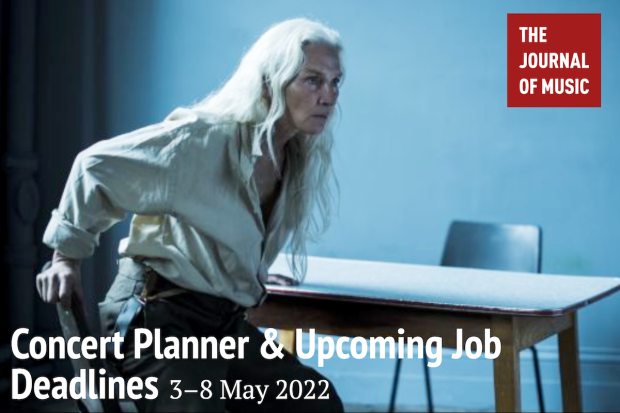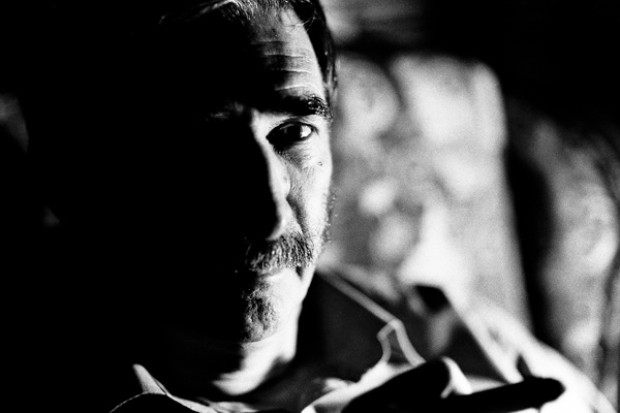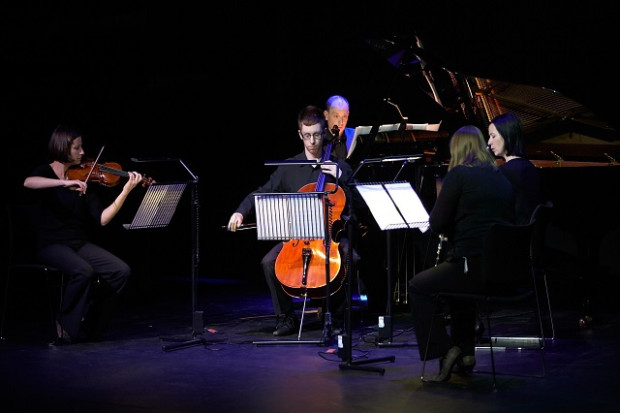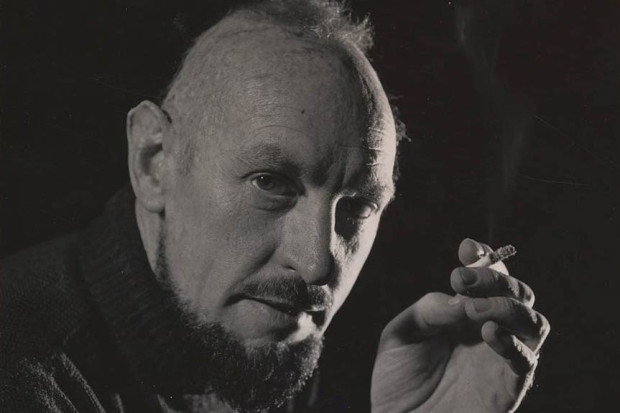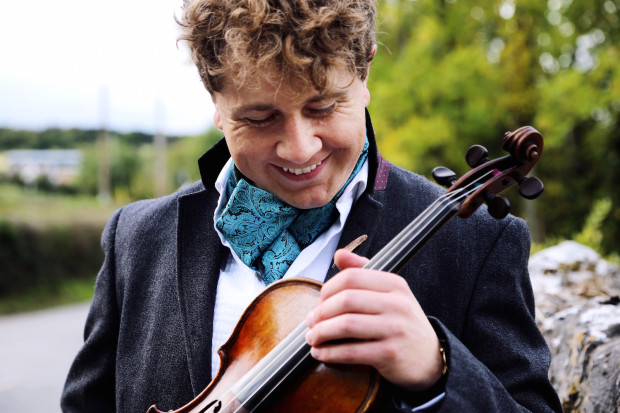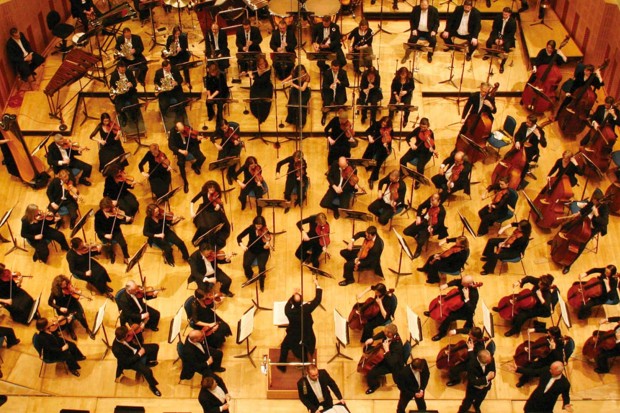
The RTÉ National Symphony Orchestra
Where is All the New Orchestral Music?
Why should an orchestra perform new work? In any other art form, such a question would be met with a blank stare. Why should publishers bring out new books? Why should film studios produce new movies? Why should art galleries exhibit new paintings or sculptures? The answer is that there is a demand for it. New work generates attention, anticipation and excitement. It can even make money. Publishers and film studios release new titles in order to make a profit. Private galleries display work in the hope of making commissions from sales. Netflix may boast about its cultural contribution, but only as long as the revenue streams continue to grow and the stock price continues to climb. And yet, within the grubby capitalistic workings of the cultural economy, commercial and artistic success are not incompatible.
The situation, however, is different in contemporary orchestral music. For reasons that are partly logistical and partly to do with its adventurous nature, new music – whether a viola concerto for Lawrence Power by Gerald Barry or a piano concerto by Thomas Adès for Kirill Gerstein – is not a commercially viable proposition, at least not in the short term. Nor has it ever been. No matter how highly regarded the composer, the box office receipts from an audience that shows up for a premiere will never recoup the commissioning fee or the cost incurred in paying such a large number of highly trained musicians. The main customers for scores – if indeed the composer has a publisher – are not the public but state-funded orchestras while recordings are overwhelmingly a loss-maker that require subsidisy by art bodies.
Explaining why an orchestra should perform contemporary music, therefore, relies on more long-term, idealistic arguments. Most people agree that orchestras, particularly state-funded ones, should commission new works in the hope that a small minority of them will form significant cultural achievements that will inspire future generations in the same way that works from the past continue to excite us today. However, the chances of encountering work of the highest quality is predicated upon commissioning consistently over a long period and over the last few decades there have been a number of pieces commissioned and performed by RTÉ that I believe will be performed well into the future: works such as Gerald Barry’s The Bitter Tears of Petra von Kant, Raymond Deane’s Ripieno, Gráinne Mulvey’s Akanos and Andrew Hamilton’s C are just a few of them. These works form part of a significant musical legacy that will be judged by future generations as a benchmark of our musical culture.
Under grave threat
However, the continuation of this tradition has been placed under grave threat due to the lack of any clear policy with regard to new music by the current management of RTÉ. In this coming season there will be a total of 63 minutes of contemporary music performed during the RTÉ National Symphony Orchestra main season. In making this calculation I am interpreting the term ‘contemporary music’ to denote music composed inside of the last ten years – a generous designation that in any other art form would be considered too long. This represents a mild increase on last year’s total of 54 minutes but more accurately it indicates a confirmation of the ‘new normal’ as far as the orchestra’s commitment to new music is concerned. To put this figure in perspective, two years ago I calculated the amount of new music performed by peer orchestras – state-funded broadcast orchestras in neighbouring countries – during their respective 2017/18 subscriber seasons excluding participation in new music festivals or events such as the BBC Proms. The results showed that the RTÉ NSO lagged far behind (see chart 1 below) every neighbouring country in northern Europe. Even more depressing is the huge fall-off in commitment compared to what the RTÉ NSO had been doing during the noughties when the average amount of music performed in minutes was much more in line with our continental peers (see chart 2). In terms of the season itself, the 63 minutes of new music will amount to about 2−3% of the season’s output. By any estimation this figure is quite shocking.
Chart 1: Comparison between the RTÉ NSO and other European broadcasting orchestras in terms of contemporary music performed (in minutes) – 2017/18 season.
Chart 2: Amount of contemporary music performed (in minutes) during the RTÉ NSO’s main season from 2004 to present.
Lack of policy
Compounding matters is the lack of a clear policy when it comes to deciding which contemporary works are performed or commissioned. Again, this is in stark contrast to RTÉ policy throughout the noughties where there was a fairly consistent policy of commissioning three to four Irish composers every year with the opportunities split between young up-and-coming figures like Andrew Hamilton, Jennifer Walshe and David Fennessy and more established figures like Gerald Barry, John Buckley and Philip Martin. This was complemented by the works of non-Irish composers that had been successfully premiered elsewhere and were being performed in Dublin to give Irish audiences a sample of what was happening on the international circuit. My point is that there was at least some consideration given to formulating a coherent policy and while it may not have been perfect, it did constitute a basic infrastructure for the provision of contemporary orchestral music in Ireland.
In contrast, an analysis of the current season would seem to indicate that a significant proportion of the contemporary works due to feature are there by chance. Two of the four pieces are clearly programmed because they happen to be part of the repertoire of guest conductors rather than a deliberate desire on the part of management to foster an appreciation of contemporary music. The American conductor Leonard Slatkin will conduct his own piece Kinah (2015) as part of the popular Culture Night programme on 20 September while later in March, Joshua Weilerstein will perform Caroline Shaw’s Entr’acte (2014), a piece that is part of Weilerstein’s touring repertoire for 2020. Out of the two RTÉ commissions, the more substantial one (a new symphony) has been granted to John Kinsella, the former head of music in RTÉ from 1983 to 88, and a composer who was already commissioned to write four symphonies (Nos 3, 4, 5 and 6) in the years following his retirement. The sole remaining contemporary piece featuring in the 2019/2020 season will be by the Swedish composer Albert Schnelzer whose Burn My Letters – Remembering Clara is a co-commission between the three ensembles where recently appointed principal conductor Jaime Martín is in situ as chief conductor – the Los Angeles Chamber Orchestra, the Gävle Symphony Orchestra and the RTÉ NSO. This may be an example of international partnerships, but I would sincerely like to know the convictions held by the management of RTÉ on the merits of Schnelzer’s work that he managed to receive a commission ahead of more promising Irish composers.
Quarantine policy
Programming new works during the season alongside standard repertoire ensures that the work of contemporary composers is performed regularly to the core constituency for classical music. The audience attending the NCH for the NSO’s weekly concerts on Friday evening are the single largest body of people to attend a classical music event in the country. A large proportion of them are either subscribers or attend regularly throughout the season and there is also a sizeable audience who listen live to a broadcast of the concert on RTÉ Lyric FM or YouTube. The idea that a significant number of listeners might be interested in something other than the ‘soothing balm’ notion of classical music as a panacea for all manner of modern-day stresses and tempted to venture to more challenging events like New Music Dublin is based upon developing some awareness of the fact that contemporary actual exists.
In his interview with the Journal of Music last February, general manager Anthony Long seemed to indicate that he understood the logic of integrating contemporary work alongside mainstream repertoire:
Our [NSO] audience tends to be reasonably conservative in its tastes. I don’t think that’s unfair. I don’t think it’s a bad thing to say either. We have to make sure that we cater for those people. The last thing you want to do is alienate your audience, especially those who come week in, week out. If we’re introducing some challenging or unknown works, we try to do that within a broader palette of music they know.
Even if I don’t quite share Long’s concern that challenging work has the capacity to send the regular punter running for cover, the idea of programming contemporary work alongside familiar pieces is the correct approach. But how many times did this happen last year? During the 2018/2019 season there were only two such occasions when subscribers could have experienced new work composed inside the last ten years. This time last year José Serebrier gave the world premiere of his own Symphonic B A C H Variations for Piano and Orchestra while in March 2019 Ilan Volkov conducted a performance of Saariaho’s clarinet concerto D’om le vrai sens with soloist Kari Kriikku.
In reality, Long has done precisely the opposite and pursued a ‘quarantine’ approach to new music. Rather than incorporating new work into programmes of standard repertoire, the bulk of new music has been corralled into meaningless sideline initiatives that haven’t a hope of making any impact on the public at large. The most egregious example of this policy in action is the so-called ‘Music in Our Time’ concerts, a descendent of the once relatively coherent Horizons concerts but which now resemble an unfortunate shambles. As reported in the Journal of Music, these concerts reached their lowest ebb last October when the orchestra managed to outnumber the audience. That this came about is hardly surprising given that the series is programmed at a most inconvenient time (Tuesday lunchtime), receives no advertising, features an under-rehearsed orchestra, and, most tellingly, is cobbled together two weeks in advance and in some cases without even informing the composer whose work is being featured. It is almost as if the management are wishing for the series to fail in order to justify the culling of contemporary music altogether. When the Horizon’s series was in its heyday, there were at least four curated concerts in January every year that were advertised months in advance and were featured in the NSO season brochure. While the turnout was never spectacular, it was always a healthy multiple of the orchestra on stage.
Another poorly utilised scheme is the Composer Lab initiative held in partnership with the Contemporary Music Centre. On the surface of it, this scheme seems sensible enough. Composers are invited to submit details for a piece lasting 6 to 8 minutes along with some of their previously completed work that is then judged by a panel consisting of a mentoring composer and representatives from the CMC and RTÉ. The pieces are then workshopped in a number of sessions with the orchestra under the supervision of the mentoring composer. So far, so good. However, one might expect that the results of this lengthy and no doubt expensive project would then be displayed to the public in a well-advertised concert at the NCH or perhaps the best pieces would be incorporated with some fanfare into the main season in some kind of rising star format. Astonishingly, they are not even presented to the public in a concert format at all. Instead, there are closeted away in an invite-only performance in the RTÉ Studio in Donnybrook for a live broadcast on Lyric FM from 9pm to 10pm. Given the many months of planning, which involves a least one member of the CMC working extensively on the project, a once-off, late-night and barely advertised broadcast is hardly the most effective way to present the fruits of this initiative to the public and is again another example of the wasteful approach taken by RTÉ when it comes to new music.
A glimmer of hope
If there is one glimmer of hope it is that the appointment of Jaime Martín as chief conductor, after a vacancy that lasted four years, may provide the orchestra with a sense of artistic direction. However, it is worth pointing out that he will only conduct six concerts this season – a rather low figure for a chief conductor and only two concerts more than the principal guest conductor Nathalie Stutzmann. To put this in perspective, when Gerhard Markson was principal conductor he would preside over a minimum of ten concerts a year. This low figure is surely reflective of the fact that Martín is currently chief conductor at three orchestras and therefore is forced to spread himself thin to cover these commitments. On the positive side, Martín has included older works by Ian Wilson and Elaine Agnew in the concerts he will conduct while contemporary music is also an integral part of his programmes with the Los Angeles Chamber Orchestra. It can therefore be hoped that, with time, this interest will transfer over into his programmes with the RTÉ NSO.
Unfortunately the same cannot be said about the principal guest conductor Nathalie Stutzmann who has yet to feature a single modern, let alone contemporary piece, in any concert she has conducted with the RTÉ NSO. While Stutzmann is a good conductor and has proved herself popular with Dublin audiences her repertoire is severely limited. The vast majority of the works she conducts are confined to nineteenth-century German composers with much of it recycled between her concerts with the RTÉ NSO and her conducting duties with the Kristiansand Symphony Orchestra in Norway were she is chief conductor. While there’s nothing wrong with recycling some of the same repertoire between gigs – particularly if the conductor is in demand – Stutzmann’s schedule displays a concerning degree of overlap. Surely both the principal guest conductor and the chief conductor should have stipulations in their contract obliging them to perform a certain number of Irish works in each season.
Outlook
Maintaining a policy of consistent commissions and performances of new music requires a not insignificant degree of courage, commitment and vision. It is no secret that RTÉ’s budget for new music, like other departments at the station, is strapped for cash. As Long alluded in his February interview:
I can honestly say over the past couple of years that we haven’t championed as many composers as we would have liked to do, but that comes down to the fact that our budgets have decreased significantly as RTÉ’s budgets have decreased. We haven’t had the finance to commission as much as we would like.
While acknowledging the constraints that Long and RTÉ are under, one has to question whether this is an acceptable reason to simply throw one’s hands in the air and accept the current situation for what it is. A good orchestral administration finds money for the things that matter even if funding isn’t always directly available from the most convenient sources. This has been done several times in the past, most recently when Bord na Móna bankrolled the Composing the Island festival.
However, given the current wasteful use of the resources already in existence, the station does not give the impression that it sincerely believes in the cultural value of the work itself. As the only full-time professional symphony orchestra in the country with the capacity to perform contemporary music to an adequate standard, one hopes that the RTÉ NSO can somehow rediscover their once proud tradition of performing new music and bequeath a legacy to future generations.
Published on 12 September 2019
Adrian Smith is Lecturer in Musicology at TU Dublin Conservatoire.













